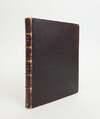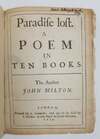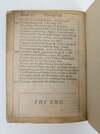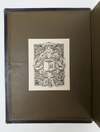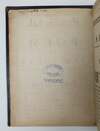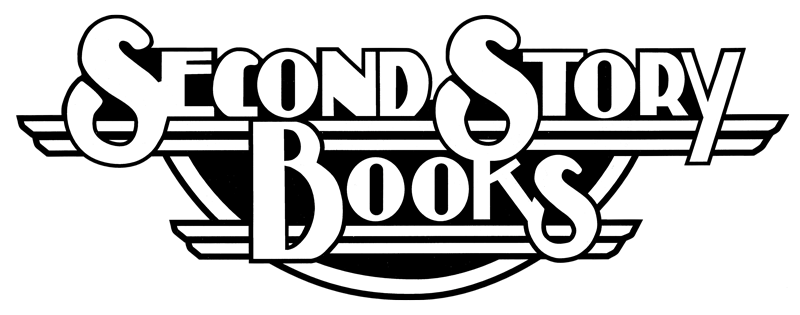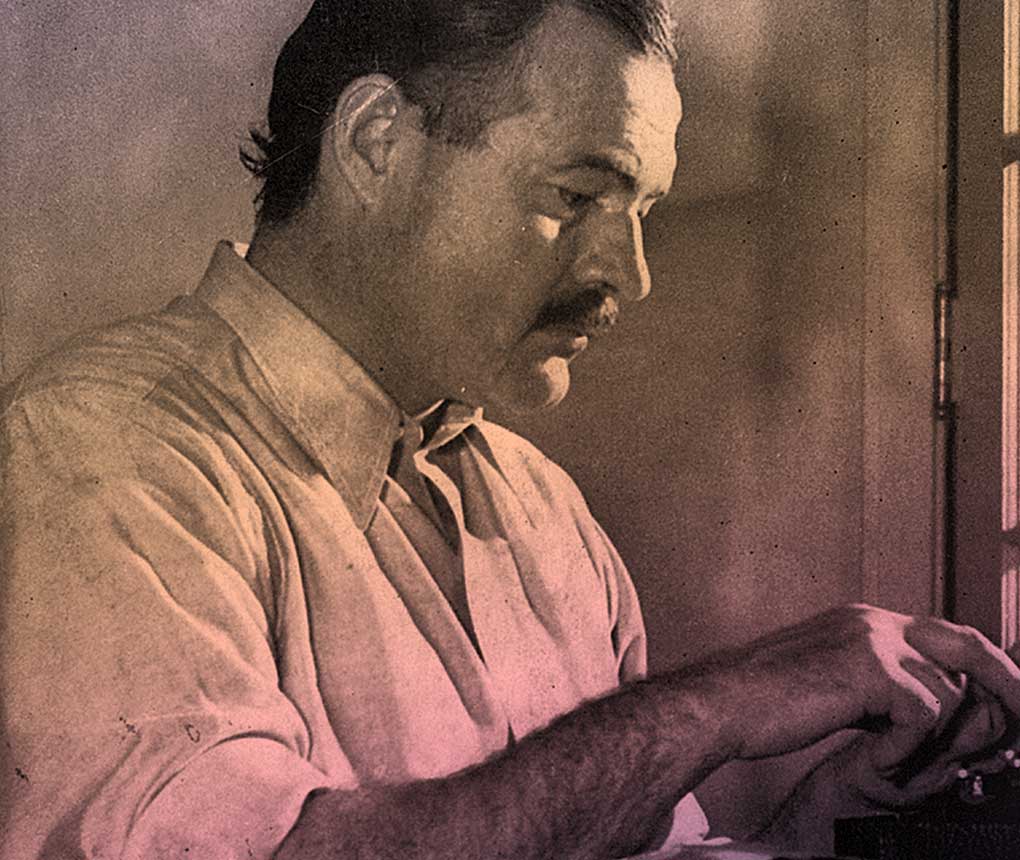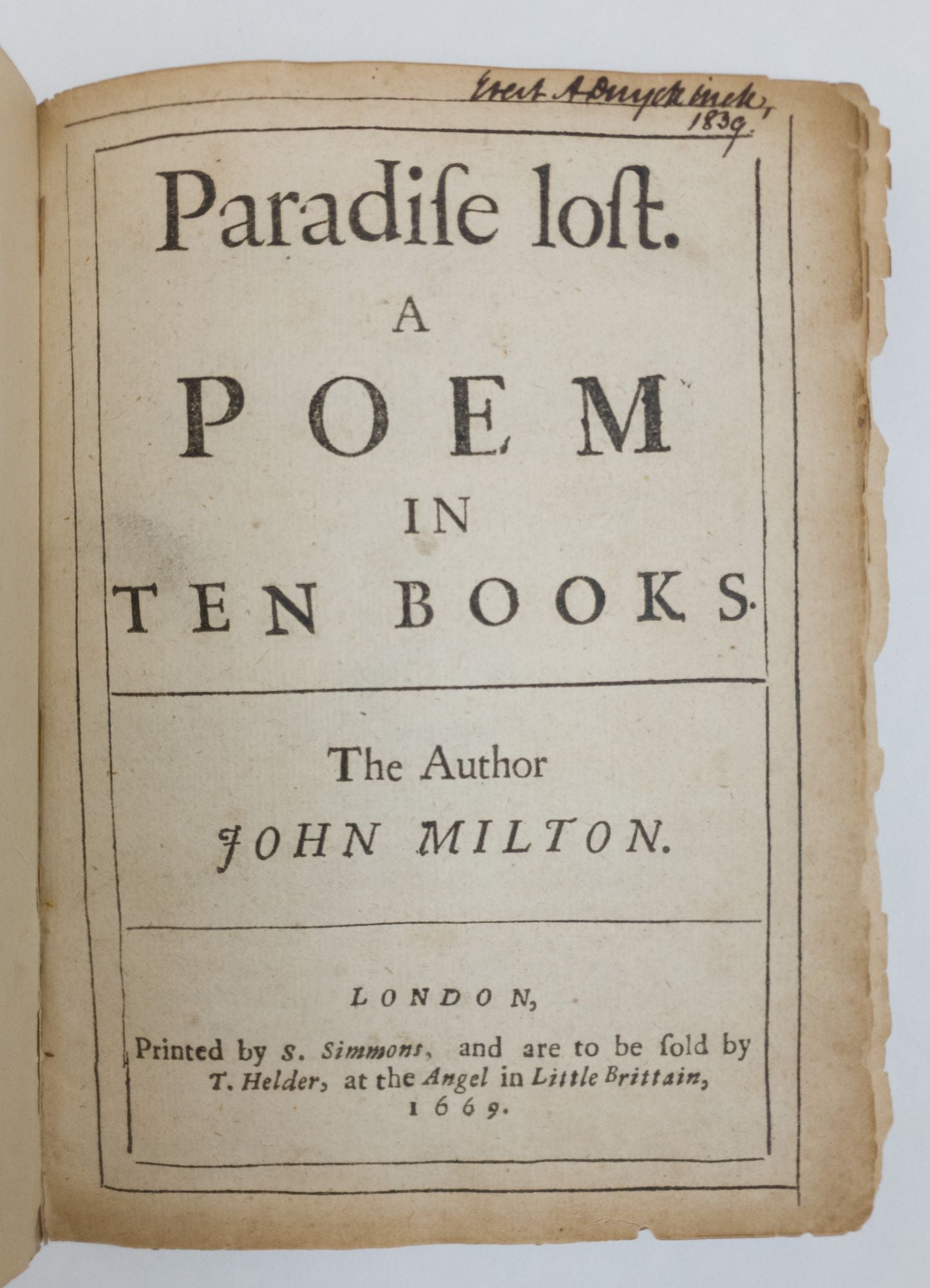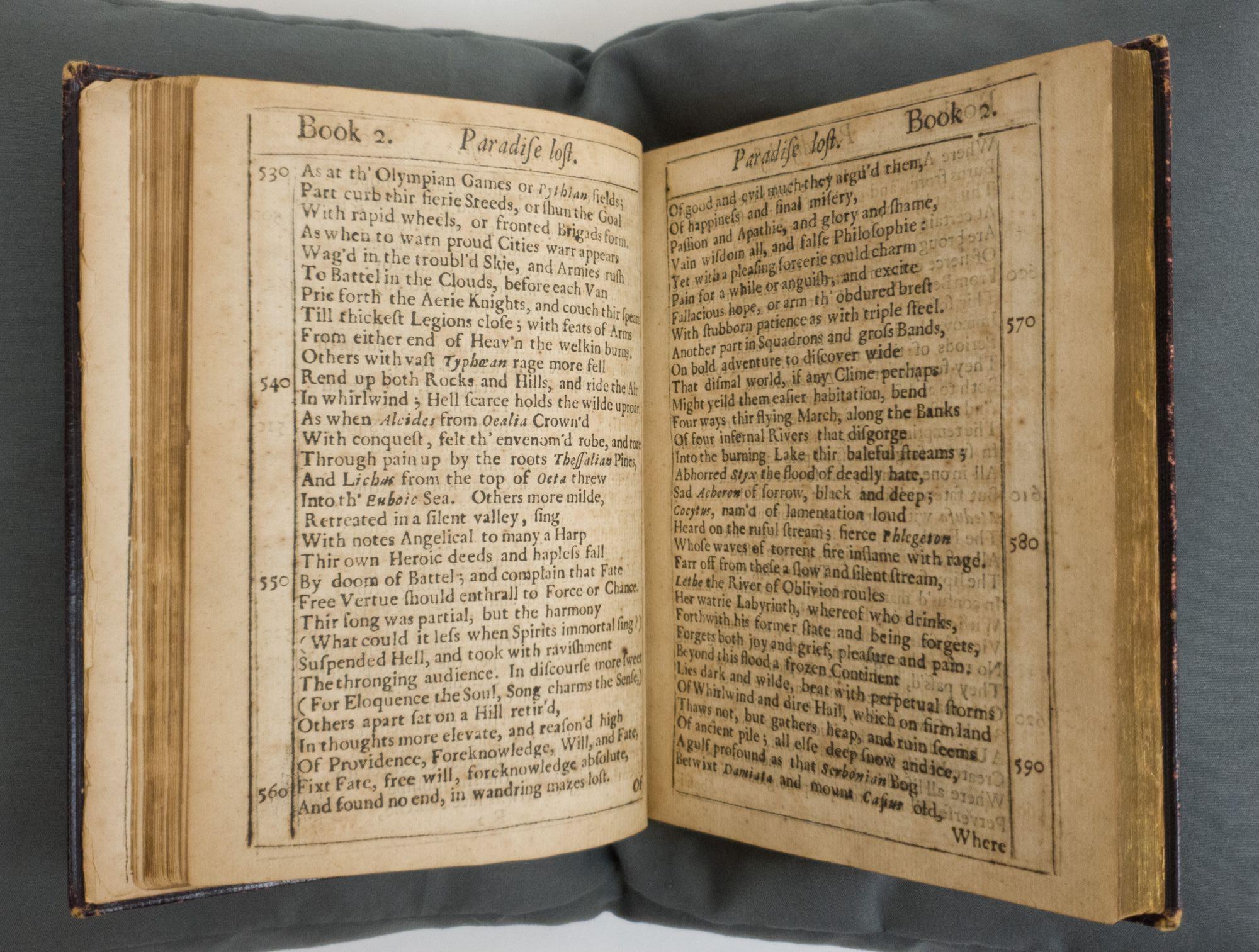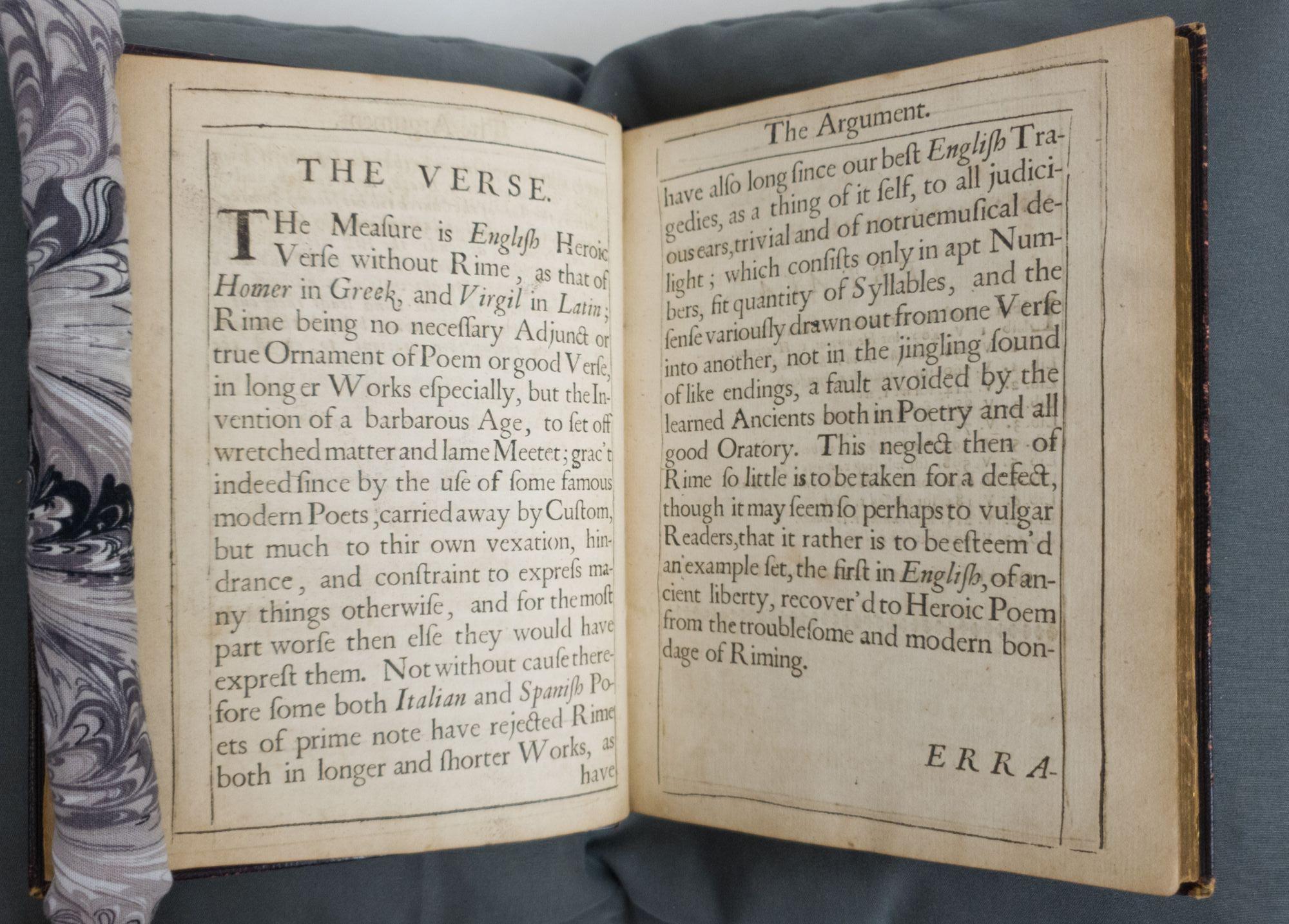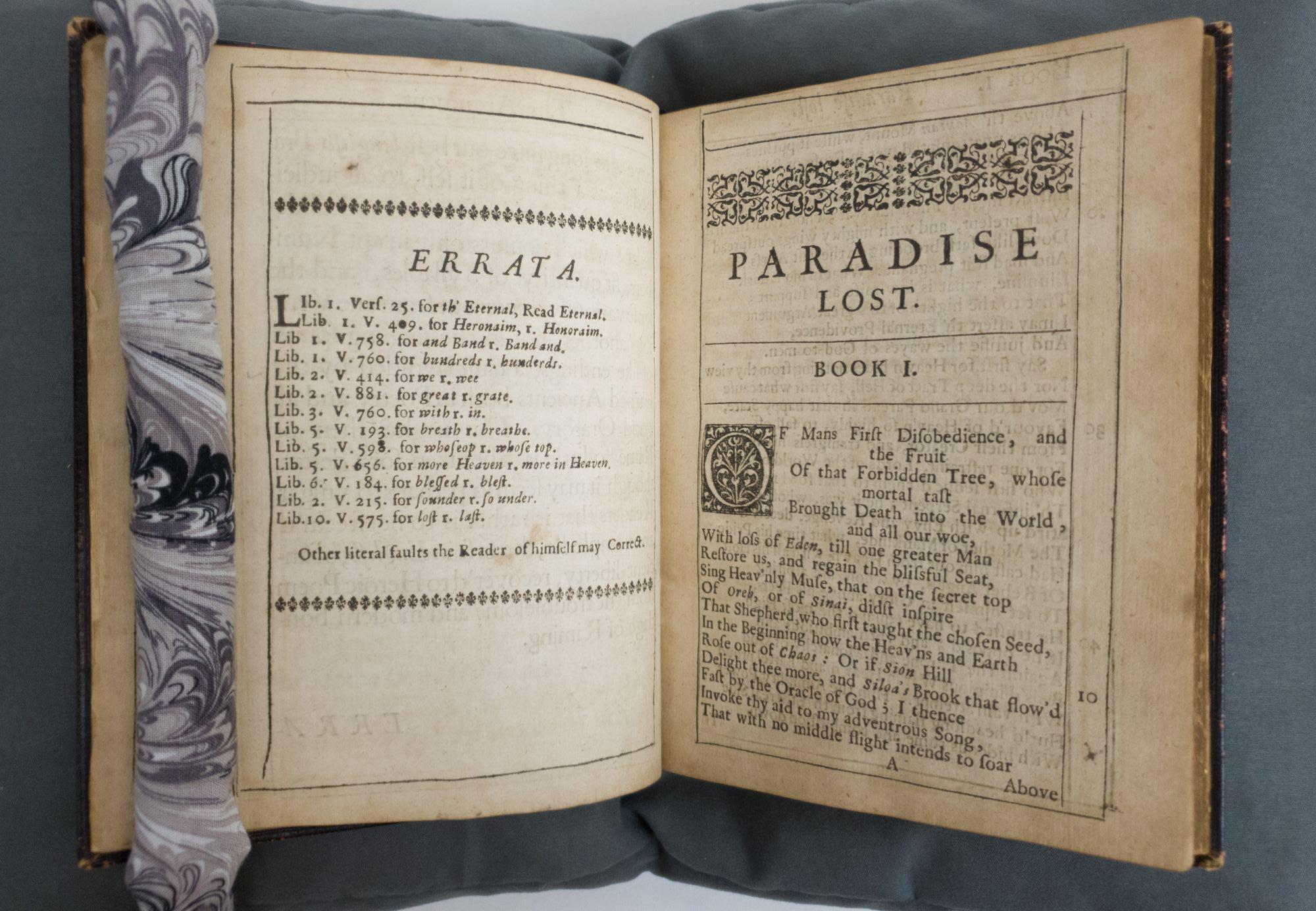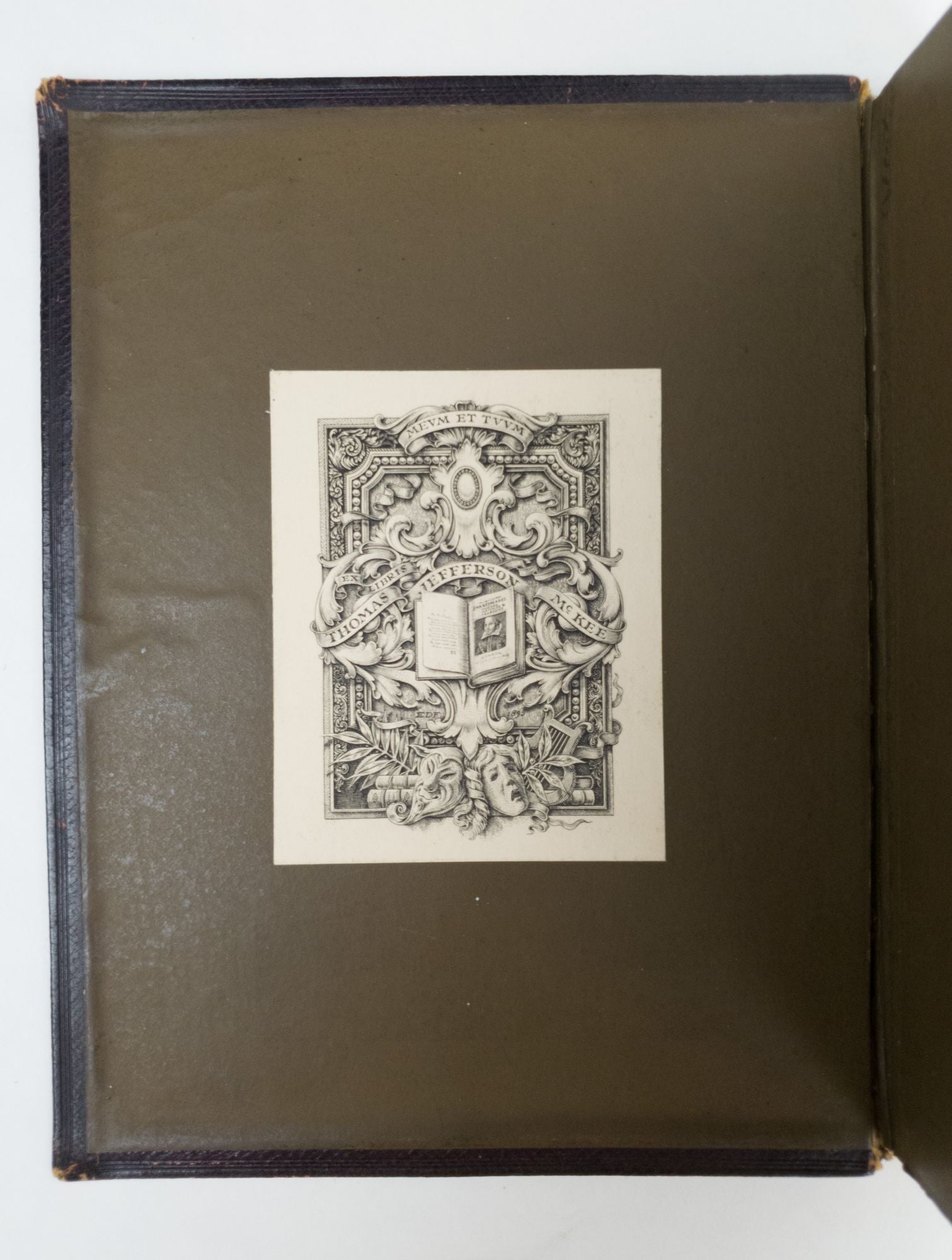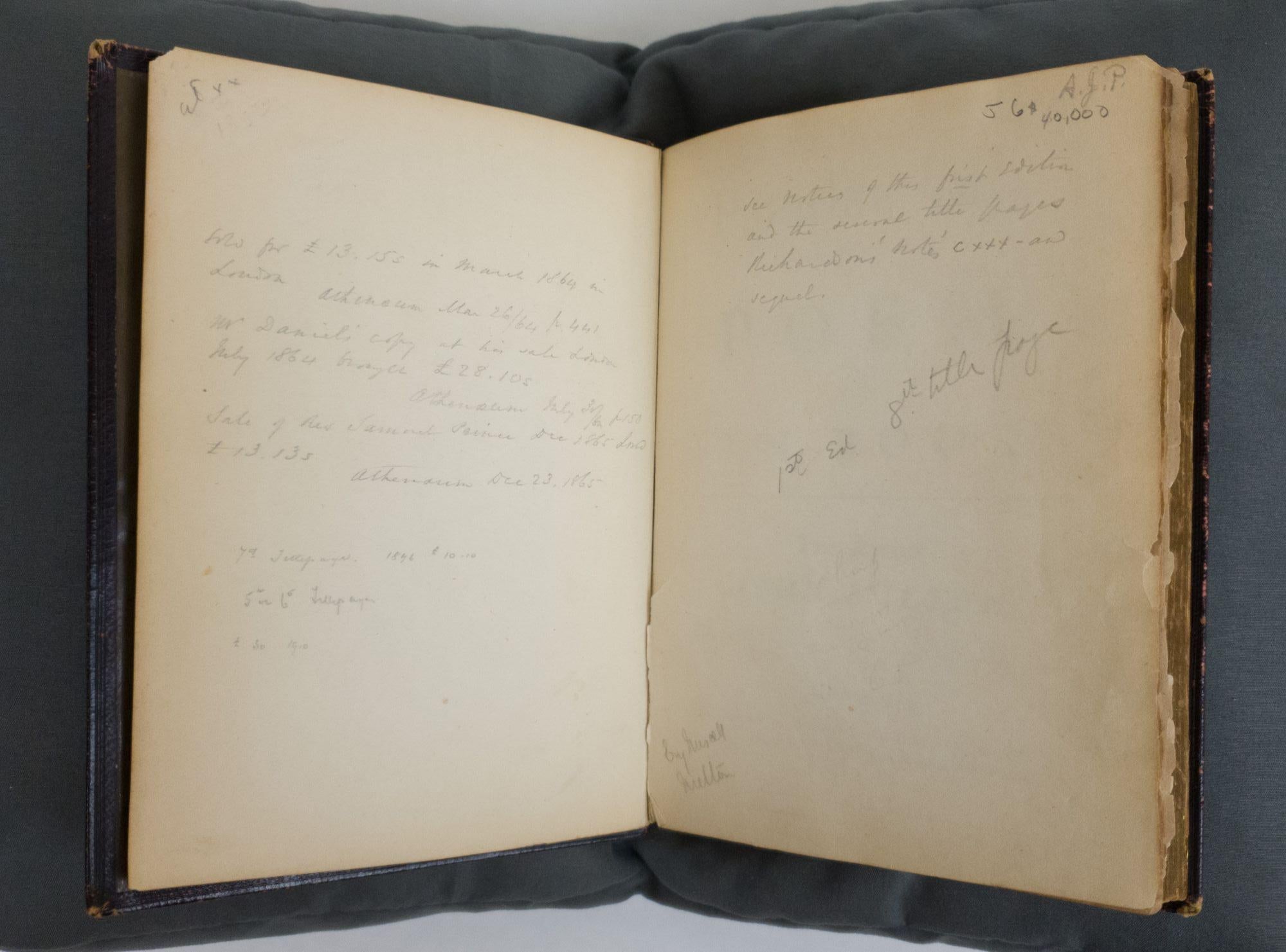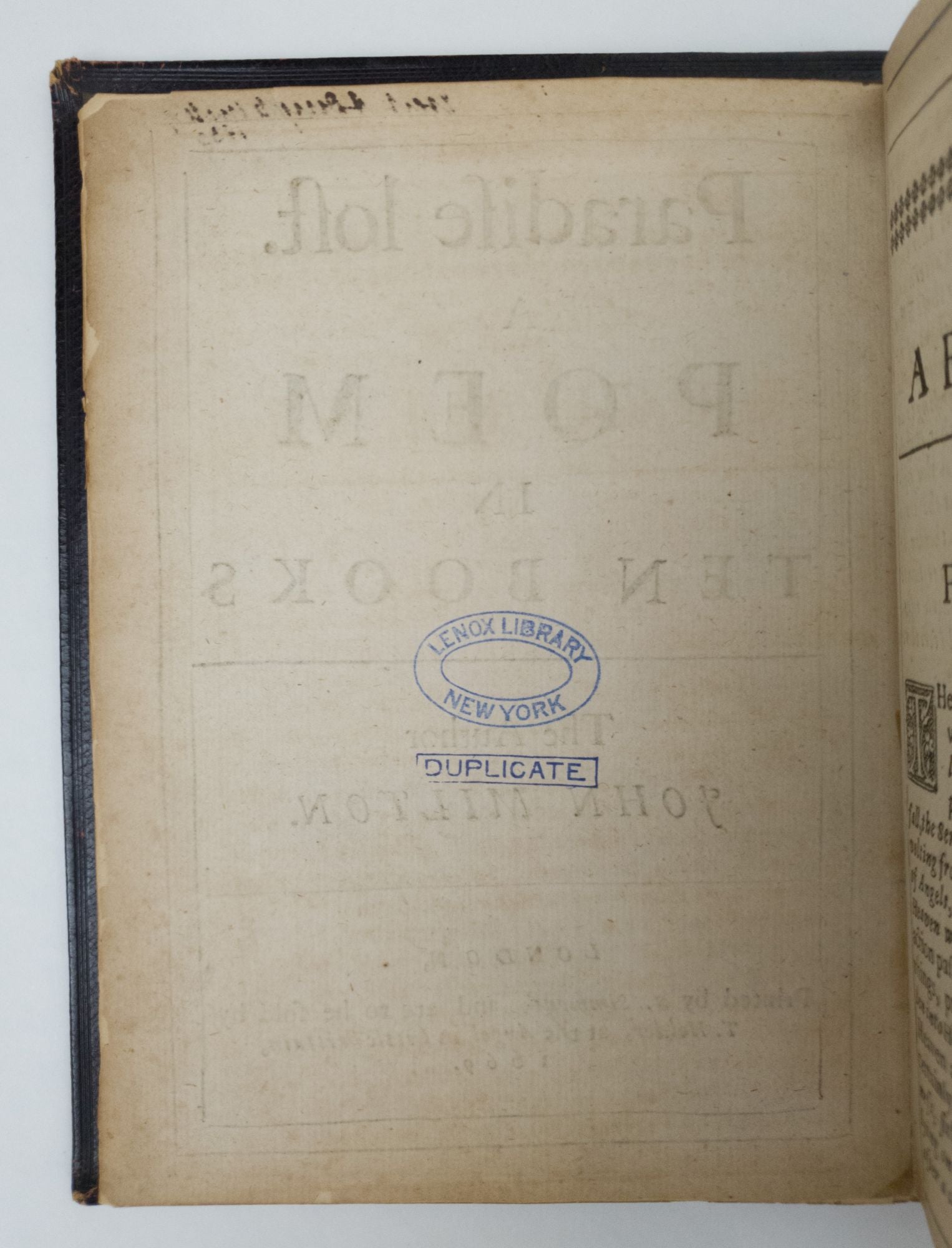PARADISE LOST
PARADISE LOST
Edition: First Edition
Place of Publication: London
Publisher: Printed by S. Simmons, and are to be sold by T. Helder, at the Angel in Little Brittain
Publication Date: 1669
More Details
References: ESTC 13352, Wing M2143, Shawcross 303, Coleridge 90f, Grolier: Wither to Prior, 604.
Octavo; VG; bound in full morocco, spine paneled with gilt lettering; gilt text block; some wear and rubbing to binding; ffep through page A3 loose; A4, a4, A4-Tt4, Vv2; small hole in middle of leaf Cc3, impacts text; a few leaves slightly stained; text block moderately age toned with a few scattered marginal marks in pencil and old ink.
Bookplate of Thomas Jefferson McKee. McKee, 1840-1899, was a well-known book collector and lawyer from New York whose collection was auctioned off in 1900. In the auction, this copy was item number 3091.
Autograph of Evert A. Duyckinck, 1839 on top blank margin of title. Evert Augustus Duyckinck, 1816-1878, was an American publisher and biographer. Among his work, he assisted Edgar Allan Poe in printing his Tales collection in 1845 and selected which stories to include. Duyckinck was also known to have lent Melville copies of his books, including a copy of the Decameron and a copy of Paradise Lost.
Has two library stamps reading "Lenox Library New York" and "Duplicate" on verso of title. The Lenox Library was a library incorporated and endowed in 1870, became a part of the founding collection of the New York Public Library in 1895, and opened to the public in this capacity in 1911. Of its collection in 1894, 15,000 of the 83,331 were from the collection of Evert Augustus Duyckinck.
Simmons printed 1,200 first edition copies in 1667, and issued them over three years with varying title pages. The title pages have different years, with them reading 1667, 1668, or 1669. There is no known relationship between when a given copy of the text itself was printed, and the attached title page, making establishing priority difficult.
This issue includes "Milton's synopsis of each book ("the Arguments" of Books 1–10), his defense of "the Verse," and a list of errata, adding sixteen pages of preliminary matter to the book. Simmons's note to the reader states that he had procured this explanation from Milton because readers of the poem had "stumbled" on first encountering it, asking "why the Poem Rimes not." Milton's strident defense of blank verse (unrhymed iambic pentameter) is printed in large type that fills two pages. His chosen meter, although no longer fashionable by 1667, was the dominant mode of Shakespeare's plays and is the closest to the natural rhythms of English speech. Samuel Johnson later commented sarcastically that, "finding blank verse easier than rhyme, [Milton] was desirous of persuading himself that it is better."" [Morgan Library]
JG consignment. Shelved in Case 0.
Octavo; VG; bound in full morocco, spine paneled with gilt lettering; gilt text block; some wear and rubbing to binding; ffep through page A3 loose; A4, a4, A4-Tt4, Vv2; small hole in middle of leaf Cc3, impacts text; a few leaves slightly stained; text block moderately age toned with a few scattered marginal marks in pencil and old ink.
Bookplate of Thomas Jefferson McKee. McKee, 1840-1899, was a well-known book collector and lawyer from New York whose collection was auctioned off in 1900. In the auction, this copy was item number 3091.
Autograph of Evert A. Duyckinck, 1839 on top blank margin of title. Evert Augustus Duyckinck, 1816-1878, was an American publisher and biographer. Among his work, he assisted Edgar Allan Poe in printing his Tales collection in 1845 and selected which stories to include. Duyckinck was also known to have lent Melville copies of his books, including a copy of the Decameron and a copy of Paradise Lost.
Has two library stamps reading "Lenox Library New York" and "Duplicate" on verso of title. The Lenox Library was a library incorporated and endowed in 1870, became a part of the founding collection of the New York Public Library in 1895, and opened to the public in this capacity in 1911. Of its collection in 1894, 15,000 of the 83,331 were from the collection of Evert Augustus Duyckinck.
Simmons printed 1,200 first edition copies in 1667, and issued them over three years with varying title pages. The title pages have different years, with them reading 1667, 1668, or 1669. There is no known relationship between when a given copy of the text itself was printed, and the attached title page, making establishing priority difficult.
This issue includes "Milton's synopsis of each book ("the Arguments" of Books 1–10), his defense of "the Verse," and a list of errata, adding sixteen pages of preliminary matter to the book. Simmons's note to the reader states that he had procured this explanation from Milton because readers of the poem had "stumbled" on first encountering it, asking "why the Poem Rimes not." Milton's strident defense of blank verse (unrhymed iambic pentameter) is printed in large type that fills two pages. His chosen meter, although no longer fashionable by 1667, was the dominant mode of Shakespeare's plays and is the closest to the natural rhythms of English speech. Samuel Johnson later commented sarcastically that, "finding blank verse easier than rhyme, [Milton] was desirous of persuading himself that it is better."" [Morgan Library]
JG consignment. Shelved in Case 0.
Item:
1347860
